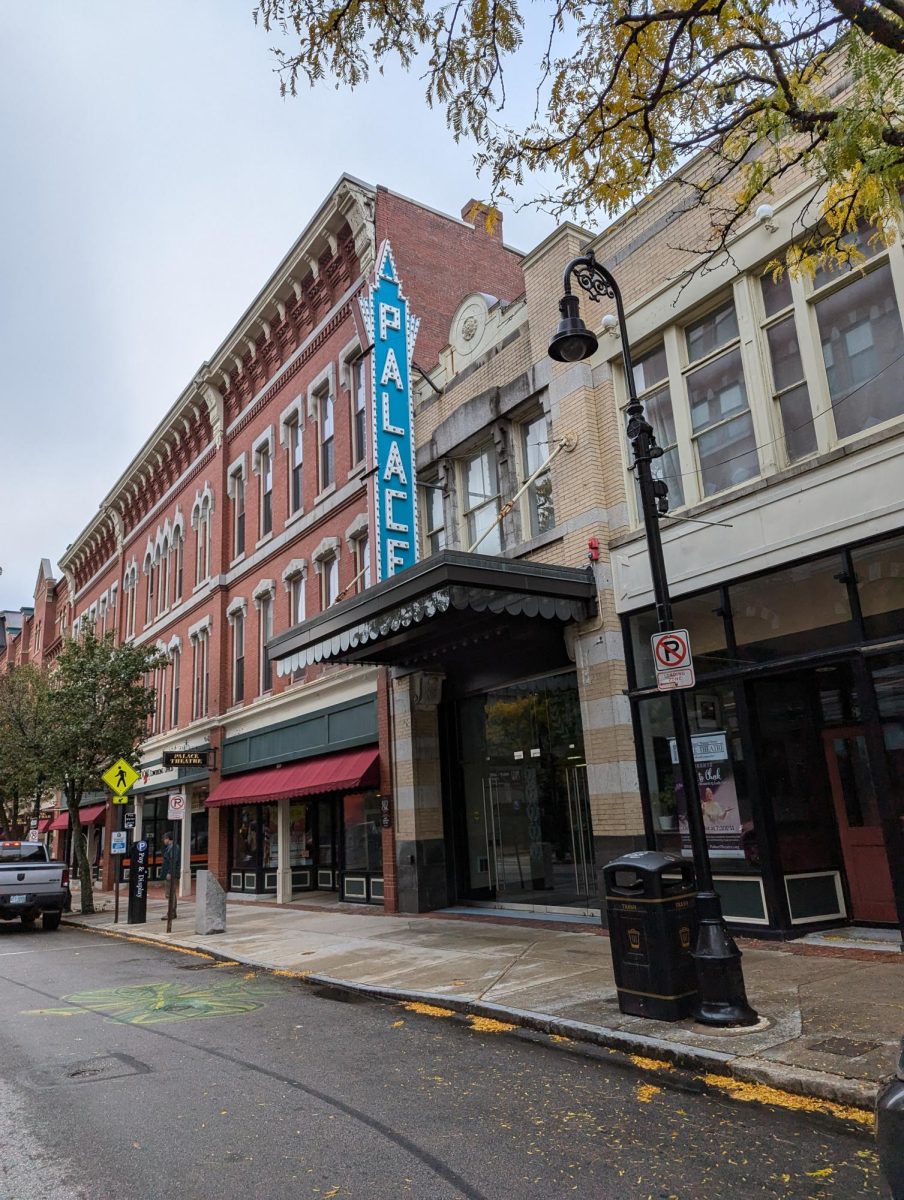The Culture of Manchester series explores different community cornerstones outside Saint Anselm College. Last week’s issue covered the Millyard Museum. This week, the series will focus on the Palace Theater, a historical building and theater in Manchester.
According to their website, the Palace Theater is “committed to achieving [their] mission through preserving the historic facilities of the theatre, responding creatively to the cultural and entertainment needs of the community, and governing in a fiscally responsible and strategic manner.” The Palace was created by a Greek immigrant named Victor Charas in 1914. The website states, “At the age of 24, Victor arrived in America with little money and was unable to speak English.”
As a historic building, the Palace Theater in Manchester has gone through a lot of change. In the early years of its existence, the Palace held a spot as one of New Hampshire’s only first-class theaters that was air-conditioned. In its prime, the theater’s stage saw big names like Harry Houdini, and in 1928, a ticket to see “The Palace Players” for 75 cents. As the world began to see the rise of film, the Palace Theater shifted gears to cater to the public, and for a time was considered an X-rated theater.
As many other historic buildings have faced challenges, so, too, has the Palace Theater. After the space was used as classrooms for New Hampshire College, The Palace was a shell of its former glory. John McLane, a lawyer in Manchester, and Mayor Sylvio S. Dupuis saved the legacy of the Palace Theater when they garnered support to restore the space so it could be a theater once more.
Since then, the Palace Theater has withstood major flooding, and fire damage, and according to the theater’s website, “The firewall of the Palace Theatre was credited for halting the blaze and saving the rest of the structures.” If Charas, McLane, and Mayor Dupuis did not believe in the need for a cultural hub of activity for the city of Manchester, many other structures and lives may not be here today.
Currently, the Palace Theater is the only historic theater left from the original 22 that once inhabited Manchester’s streets. To this day, it still serves as a cultural beacon for any member of the community looking for entertainment or work.
Jill Pennington, has worked for the Palace Theater since 2005, as a performer, house manager, director and music director, vocal coach for the senior citizen performance troupe, and piano player for certain upscale events. Her performance degree allowed her to secure a spot in a national tour, and when that concluded, she “immediately sought out the biggest professional theater near [her]!”
As someone who has a performance degree, and worked at the Palace Theater for almost 20 years, Pennington knows the impact that theater and the arts can have on individuals. She says that “The arts help people build community and empathy through shared experiences and storytelling.” Not only this but learning, viewing and becoming acquainted with the arts “provide[s] healthy emotional outlets for so many of us in need” according to her.
Pennington is adamant about how important the arts are to a community, especially with the Palace’s status as Manchester’s high-end theater. She mentioned that “It is not an overstatement to say that Palace Youth Theatre changes lives every day with opportunities for expression, friendship, fun, discipline, excellence, growth, public speaking skills, etc.” There is a lot that people can learn from engaging with Manchester’s arts community.
Pennington touched on the importance of bringing in new and younger audiences and performers to the theater. She says, “the children’s summer series helps families pass on love of live performance to a new generation.”
Of course, Pennington also recognizes the importance of this cultural cornerstone on performers living in the community. “It provides us income, creative outlets, connection, community, challenges, and significant fun” she said.
The Palace Theater, and many theater houses across the nation, face significant challenges in putting on productions without the sponsorship of local businesses in their communities. The Palace Theater has “sponsors from many local businesses who help us do what we do,” Pennington says. In addition to the cultural impact of live theater, the Palace Theater also works to provide assistance for community members. Pennington said, “We also work with charitable organizations frequently to provide scholarships for theatre tickets, educational theatre opportunities, and even higher education for seniors who graduate from our programs.”
What Pennington truly admires about the Palace Theater and the arts in general, is that “It reminds me to connect with people by looking for the goodness and common ground in others. It challenges me to prioritize my mental health and physical fitness, to meet deadlines, to manage my time, and to believe in myself beyond perceived limits.”


